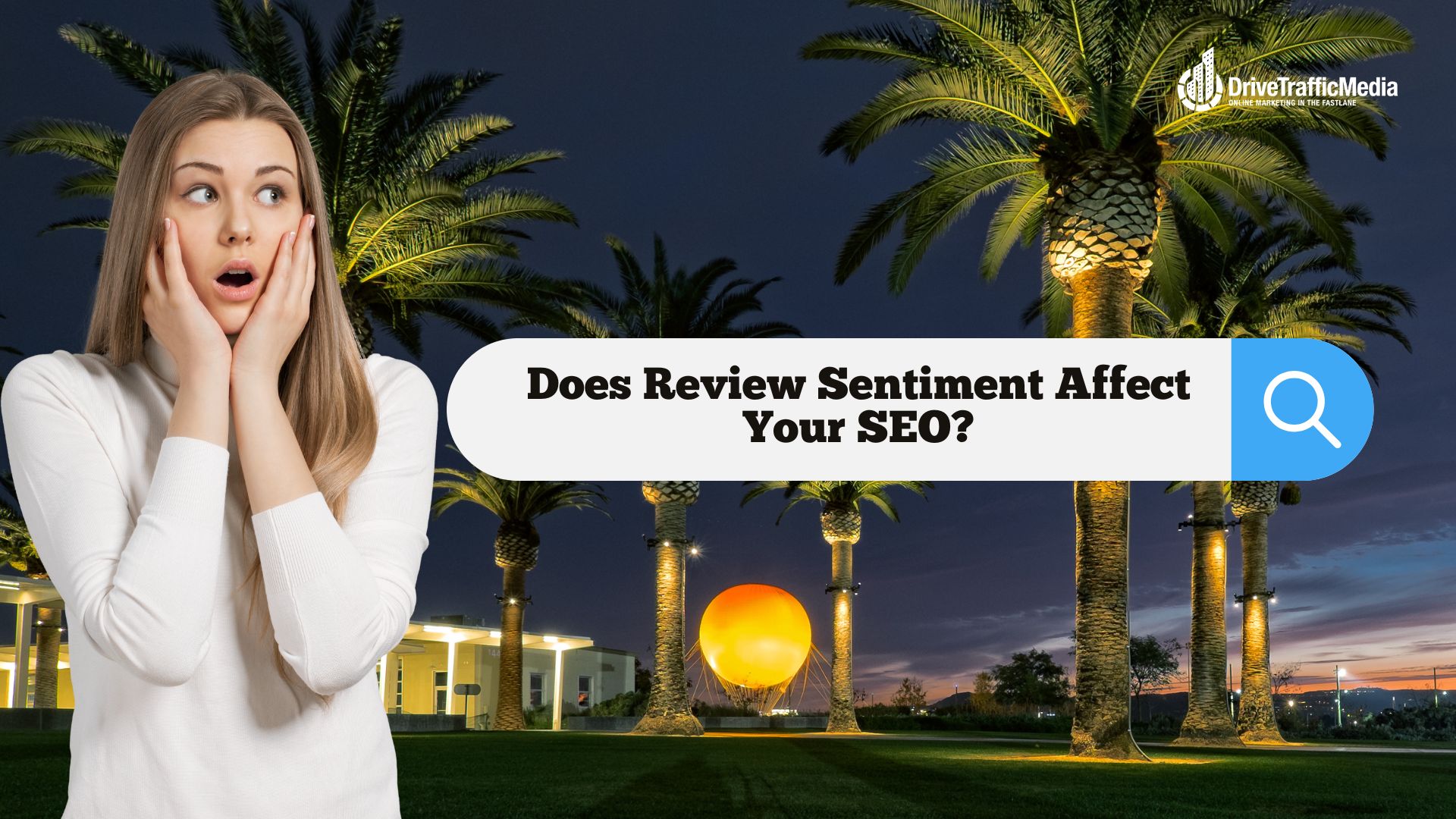Review sentiments are the positive and negative perceptions about your brand. These are reflected by the reviews you get on your social media profiles or local listings.
There is legitimate concern behind whether or not review sentiments affect your search engine rankings. On the one hand, some businesses may get targeted with negative reviews by their competitors and fall off the ranks. On the other hand, some businesses can abuse this by posting their own positive reviews and artificially inflating themselves.
So, while we all know that review sentiment does affect customer behavior, will it affect your SEO as well?
As an SEO company in Orange County, we’re determined to find out.

What are the Claims?
People often assume that positive review sentiment brings about higher rankings because a lot of high-ranking sites have positive review sentiments.
Additionally, because review sentiment is mentioned in Google’s Search Quality Rater guidelines, people also conclude that review sentiment is a factor in SEO.
As stated in the guidelines:
“Customer reviews can be helpful for assessing the reputation of a store or business. However, you should interpret these reviews with care, particularly if there are only a few. Be skeptical of both positive and negative user reviews. Anyone can write them, including the creator of the website or someone the store or business hires for this purpose.”
Where’s the Evidence?
What people fail to realize about Google’s Search Quality Rater Guidelines is that it has no direct impact on SEO. These guidelines were written to help Google’s algorithms figure out what’s valuable and what isn’t valuable and ensure all search engine results meet a certain quality threshold. It does this by gathering feedback from real people, and some of the guidelines these people use to assess webpage quality aren’t actually used by Google’s bots as ranking factors.
One of these is review sentiments.
Going back to the quote above, Google highly recommends people use fair judgment when it comes to reviewing sentiment. If positive reviews seem fake and ingenuine, or if negative reviews seem harsh and devoid of any constructive criticism, then it’s likely that they’re fake. Once Google receives feedback that reviewers were faked, these sites are less likely to move up or down the rankings as it had been tampered with.
Google encourages people to review sentiments themselves because sentiment isn’t something that their algorithms can measure. Their bots may be pretty smart cookies, but at the end of the day, they’re still robots. They can’t judge you by your review sentiments if they have no idea what review sentiments are.
This was confirmed in a Tweet by Google’s Public Liaison for Search, Danny Sullivan, in 2018.
Conclusion
To conclude, review sentiment is confirmed to not directly impact your search rankings. This was confirmed by the officials at Google.
However, that doesn’t mean you should be complacent. Negative online reviews almost always precede a bad reputation, and it will affect how users perceive you. So, if you were unlucky enough to have a legion of organic searchers who all believed your fake negative reviews, then you’re in big trouble. Google will see those high bounce rates, interpret that as your site has little value, and rank you lower. So, always make sure to report any fake reviews you get to Google and have them deleted.
Otherwise, review sentiment shouldn’t be an issue. If your good reputation completely shadows the negative reviews, then Google is going to prioritize that. Don’t freak out over every negative review you get and just focus on improving your business.
Got more questions for us? We are a digital marketing agency in Orange County that can give you all the answers. Contact us at (310)341-3939 or info@drivetrafficmedia.com to reach out.
